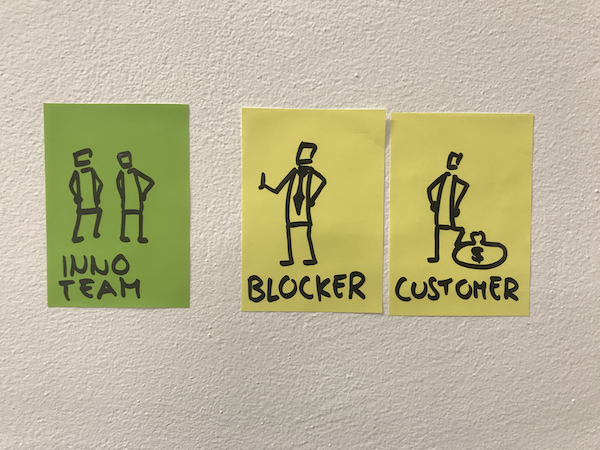
- Details
More and more we are finding that there needs to be a balance. While we love to offer our clients organic building, some are still attracted to the paid version of social media. What is the right balance? Here is an interesting discussion within the cosmetics industry. Finding the right balance in yours is ideal. We can help.


- Details
This is something we have seen first hand speaking to mid and large companies about our solutions. Change. Innovation blocks. Politics. Some companies do not have the stomach to embrace innovation. While our management consulting assists some clients in creating a strategic roadmap or a plan for their superiors, many still are still waiting for a decision and or are just straight up blocked by their superiors and even at times their peers. Below are some tips to help executives out there who are looking to bring some change into their departments. 'At times it is difficult to implement strategies as a startup, especially if the culture nor executive magic wand is not there. We can help.' - Rod Ponce, Chief Bee

What’s the one thing companies have that startups don’t? Customers. Access to customers is indispensable to learn if new business ideas have the potential to become solid growth engines. So why is it so difficult for corporate innovation teams to connect with a company’s existing customers?
This is a topic that frequently comes up when we work with teams who need access to customers for corporate innovation programs. You would assume that innovation teams and companies have access to customers, but they often don’t. Why? Customers (especially key accounts) are managed and very protected by the sales team of the existing business.
The fear? The sales team might think the innovation team will mess with their bonus structure or raise customer expectations for a new product. The marketing team might think that testing low fidelity experimental ideas will mess with the brand. The legal team might think business experiments could create liabilities. It’s a cultural issue that needs to change. I believe there are solutions that can address the issue. In this post we outline three of them:
1. Create and leverage the Chief Internal Ambassador role.
In our “org chart for 21st century companies” I call for the creation of the Chief Internal Ambassador. This role can be a bridge between the existing business and innovation teams if it’s powerful enough and has the backing of the CEO. The Chief Internal Ambassador can manage the co-operation between business and innovation and help make clear why innovation teams need access to customers to test ideas. The Chief Internal Ambassador knows everything that’s going on and understands everybody’s agenda in the company. He or she can help build compromises that allow innovators to test their ideas without negatively impacting business as usual.
- Details
This has been something that we have anticipated for the past few years. While we like to advise our competitors to start minding the kids and what they do to find "clicks" for their clients, some clients are starting to pay attention to the use of their resources. With more and more information coming to surface about ad fraud, more and more clients will start to step up their demand more transparency and control over their investment. We have closely been monitoring this and would shamelessly plug that we have developed products to counter this and deliver good old fashioned organic clicks. 'A tad disruptive when all of your colleagues just don't mind peddling what we already know as problematic.' - Rod Ponce, Chief Bee.

Uber Technologies Inc. is accustomed to getting sued. Now it’s doing the suing. And it’s partly thanks to Breitbart News.
The global ride-hailing company is taking advertising agency Fetch Media Ltd. to court for click fraud, alleging that the firm improperly billed Uber for “fake” online ads and took credit for app downloads it had nothing to do with. Fetch is owned by the world’s fourth-largest advertising company, Japan’s Dentsu Inc.
Uber filed the lawsuit Monday afternoon in U.S. District Court in San Francisco. The company said it discovered something was amiss when it canceled a campaign on the conservative website Breitbart, where Fetch was placing Uber ads. As part of the lawsuit, Uber plans to seek at least $40 million in damages, according to people familiar with the matter, who asked not to be identified disclosing legal plans.
“We are shocked by Uber’s allegations which are unsubstantiated, completely without merit, and purposefully inflammatory so as to draw attention away from Uber’s unprofessional behavior and failure to pay suppliers,” Fetch Chief Executive Officer James Connelly said in a statement Tuesday. “We vigorously deny the allegations from Uber and will be responding robustly to ensure we set the record straight.”
Going on the offensive in court is a rare move for Uber. The company is a plaintiff in only two federal cases, according to data compiled by Bloomberg. Meanwhile, it has been a named defendant in about 250 federal cases. The data aren’t comprehensive but show Uber is usually on the defensive.
